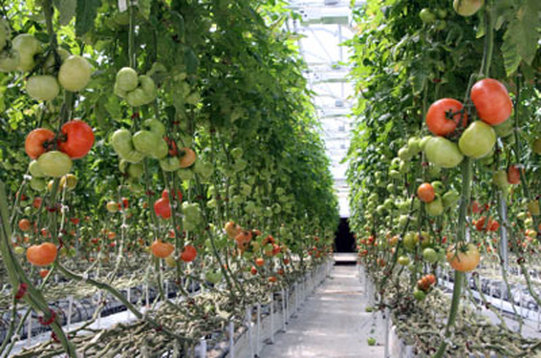Aquaponics
Aquaponics: Recycling Nutrients and Reimagining Food Production
In recent history, as consumers have been trending toward Westernized lifestyle practices with regards to the food industry, such as mass consumption and heavy reliance on industrial agriculture, unconventional food production practices have been acknowledged fairly infrequently. However, with the current rise in health and environmentally conscious consumers, sustainable food production techniques, like urban farming, community gardening, and aquaponics are receiving more attention. That attention is validated, as our society necessitates new and improved methods of food production if we are to remain self-sufficient and sustainable in our agricultural practices.
What is aquaponics?
Aquaponics is a system of food production which essentially puts fish to work by “exchanging the waste-by-product from the fish as food for the bacteria, to be converted into a perfect fertilizer for the plants, to return the water in a clean and safe form to the fish” https://www.theaquaponicsource.com/what-is-aquaponics/. Aquaponics combines aquaculture and hydroponic systems in the most effective manner, as it imitates the processes of a natural ecosystem.
Some of the most beneficial functions of aquaponics include the elimination of toxic run-off, reduced water use, and the ability to be developed in almost any space. With regards to water use specifically, aquaponics uses 1/10th of the water used in soil-based gardening and also reduces water use compared to hydroponics and aquaculture individually https://www.theaquaponicsource.com/what-is-aquaponics/. These favorable components of aquaponics make it a desirable, sustainable, and environmentally beneficial food production system for conscious consumers. Generally, aquaponics is a system of food production considered to be easily sustainable, and multiple studies have been performed to support this claim.

The picture above is showing how the aquaponics system works.
is it sustainable?
Among the sustainability opportunities of aquaponics, one of the most promising is the fact that the practice integrates nutrient flows to convert waste into an asset for crop production https://journals.ashs.org. Aquaponics recycles water and nutrients in a way that facilitates sustainable food production. Moreover, aquaponics promotes the efficient use of nutrients and, as mentioned previously, reduces run-off and conserves water comparatively. In the conclusion of an aquaponics study by the American Society for Horticultural Science, researchers stated that “aquaponics can be a sustainable agricultural production system” with further development and research of the particular processes involved https://journals.ashs.org.
How Aquaponics works
Another study published in “Aquacultural Engineering” in 2017, which compared the efficacy, benefits, and drawbacks of two aquaponic systems and focused on the main environmental impacts of aquaponics, asserted that “even if characterized by these criticalities [of system, electricity, and feed input], aquaponics could lead to more sustainable productions if compared to traditional agricultural techniques” https://www.sciencedirect.com. With regard to these studies and the comparison of aquaponics to hydroponics and aquaculture individually, the food production system of aquaponics has been proven to be a sustainable practice. However, a few drawbacks should be mentioned for the sake of a balanced analysis of the efficiency of the practice. First, there is a demand for further development, study, and innovation of current aquaponic systems. There is currently a lack of funding with regards to the development and research of aquaponics products, even though preliminary studies have yielded promising results in the connection between aquaponics and sustainability.

If aquaponics is to become a mainstream system of food production, which would be a welcomed and beneficial adaption to food production as the agricultural industry is facing many issues over farmland loss and excessive energy and water use, then further development and research into the efficacy of the practice is undoubtedly necessary. Considering the promise of rewarding effects of aquaponics concerning the environmental benefits, such as reduced run-off and water use, as well as sustainability, such as efficient nutrient use, aquaponics has established itself as a valid and desirable system of food production in the field of alternative agriculture; the promising components of the practice warrant further study into the potential benefits of a more mainstream use of aquaponics as a food production system.
Today more than ever, new methods of food production are needed, and the continued development of such methods, like aquaponics, could have immeasurable beneficial effects on the agricultural production systems of not only urban areas but also places previously seen as food desserts and poorer communities that lack the resources to participate in Westernized lifestyle practices, like mass production and consumption in the food industry. Clearly, aquaponics, along with many other alternative methods of food production, has presented a potential solution to the challenges of the food industry, and therefore, deserves the attention and funding necessary to make it a more prevalent practice in agriculture.
Blog post by Nico Martinez
References:
Sawyer, T. (2020, March 27). School Aquaponics. Retrieved October 01, 2020, from https://www.theaquaponicsource.com/school-aquaponics/
Sari, N., Silverman, E., Reiland, D., & Wehner, T. (2020, October 01). Effects of Cold Durations on Chilling Injury in Lagenaria Germplasm. Retrieved October 01, 2020, from https://journals.ashs.org/hortsci/view/journals/hortsci/55/10/article-p1551.xml
Explore scientific, technical, and medical research on ScienceDirect. (n.d.). Retrieved October 01, 2020, from https://www.sciencedirect.com/
How to Aquaponic. (n.d.). Retrieved October 01, 2020, from https://www.howtoaquaponic.com/
Aquaponics – Plants. (n.d.). Retrieved October 01, 2020, from https://suburbanaquaponics.weebly.com/aquaponics—plants.html
Aquaponics Could Be Key In Extending Maine’s Growing Season. (n.d.). Retrieved October 01, 2020, from https://www.mainepublic.org/term/aquaponics

